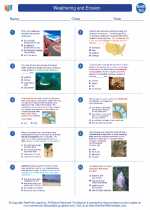Reptiles: An Overview
Reptiles are a diverse group of animals that are characterized by their scaly skin and cold-blooded nature. They are ectothermic, which means they rely on external sources of heat to regulate their body temperature. This group includes familiar animals such as snakes, turtles, lizards, and crocodiles. Reptiles play important roles in various ecosystems and have fascinating adaptations that allow them to thrive in a variety of environments.
Characteristics of Reptiles
Reptiles share several key characteristics that set them apart from other groups of animals:
- Scaly skin: Reptiles have dry, scaly skin that helps prevent water loss and provides protection from the environment.
- Egg-laying: Most reptiles lay shelled eggs, although some species give birth to live young.
- Cold-blooded: Reptiles are ectothermic, meaning their internal body temperature is influenced by the temperature of their environment.
- Lung breathing: Reptiles breathe air using lungs, unlike amphibians that can also respire through their skin.
- Terrestrial lifestyle: While some reptiles, like sea turtles, are adapted to aquatic life, most reptiles are terrestrial and rely on land for their survival.
Types of Reptiles
Reptiles are a diverse group that can be broadly categorized into several major groups:
- Squamata (lizards and snakes): This group includes a wide variety of species, from tiny geckos to large constrictor snakes. They are found in virtually every type of habitat.
- Testudines (turtles and tortoises): These reptiles are known for their protective shells and can be found in both terrestrial and aquatic environments.
- Crocodilia (crocodiles and alligators): These large, predatory reptiles are well-adapted to life in and around water, with powerful jaws and streamlined bodies.
- Rhynchocephalia (tuatara): The tuatara is a unique reptile found only in New Zealand, representing a distinct evolutionary lineage.
Ecological Importance
Reptiles play crucial roles in ecosystems as predators, prey, and ecosystem engineers. For example, snakes help control rodent populations, while sea turtles contribute to the health of marine ecosystems. Understanding the ecological roles of reptiles is essential for conserving biodiversity and maintaining healthy ecosystems.
Study Guide
To study the topic of reptiles, consider the following key points:
- What are the main characteristics that define reptiles as a group?
- How do reptiles regulate their body temperature, and why is this adaptation important?
- Compare and contrast the major groups of reptiles, including lizards, snakes, turtles, and crocodiles.
- Research a specific species of reptile and describe its unique adaptations and ecological role.
- Discuss the conservation challenges facing reptile populations and propose potential solutions.
By exploring these topics, you can gain a deeper understanding of the fascinating world of reptiles and their importance in the natural world.
[Reptiles] Related Worksheets and Study Guides:
.◂Earth Science Worksheets and Study Guides High School. Weathering and Erosion

 Worksheet/Answer key
Worksheet/Answer key
 Worksheet/Answer key
Worksheet/Answer key
 Vocabulary/Answer key
Vocabulary/Answer key
 Vocabulary/Answer key
Vocabulary/Answer key
 Vocabulary/Answer key
Vocabulary/Answer key
